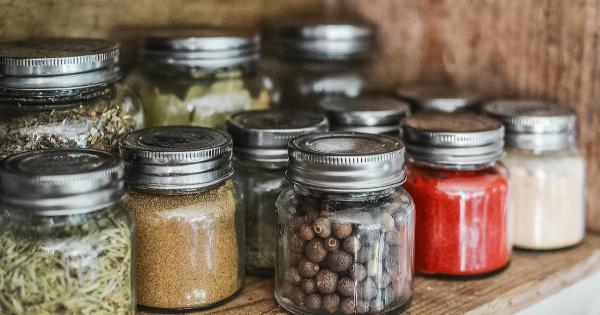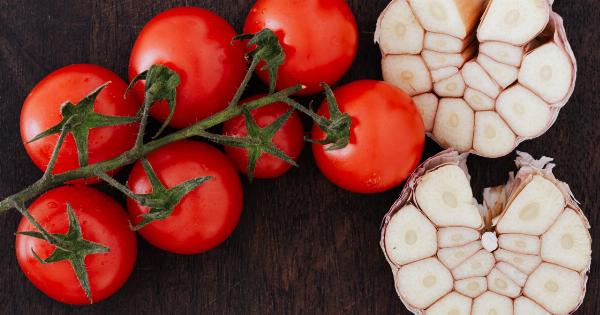Knee and joint pain may be caused by various conditions, including osteoarthritis, rheumatoid arthritis, gout, or injury.
While there are many treatment options available, such as medications, physical therapy, and surgery, some people also turn to natural remedies to alleviate their symptoms. Spices, for instance, have been used for centuries for their healing properties. Here are some of the most effective spices that can help relieve knee and joint pain:.
Turmeric
Turmeric is known for its anti-inflammatory and antioxidant properties. Its active compound, curcumin, has been found to block inflammatory cytokines and enzymes that cause joint inflammation and pain.
Turmeric can be taken as a supplement or added to food in the form of powder or paste. You can also try making turmeric tea, using fresh or dried turmeric roots.
Ginger
Ginger is another powerful anti-inflammatory spice that can help reduce joint pain and stiffness. It works by blocking the production of prostaglandins and leukotrienes, which are involved in the inflammatory response.
Ginger can be consumed fresh, dried, or as a supplement. You can make ginger tea by steeping sliced fresh ginger roots in hot water with honey and lemon.
Cinnamon
Cinnamon has been traditionally used to treat arthritis and joint pain. It has anti-inflammatory and antioxidant properties that can help reduce inflammation and pain.
Cinnamon can be added to food, smoothies, or tea for its flavor and therapeutic benefits.
Cayenne Pepper
Cayenne pepper contains capsaicin, which is a natural pain reliever. It can block substance P, a neurotransmitter that sends pain signals to the brain. Cayenne pepper can be added to food, sauces, or taken as a supplement.
Be careful not to touch your eyes or skin after handling cayenne pepper, as it can cause irritation.
Cloves
Cloves contain eugenol, a compound that has analgesic and anti-inflammatory properties. Eugenol can help reduce pain and inflammation in joints affected by arthritis and other conditions.
Cloves can be added to food, tea, or used as an essential oil for massage or aromatherapy.
Black Pepper
Black pepper contains piperine, a compound that can enhance the bioavailability of other compounds, such as curcumin. This means that black pepper can help improve the absorption and effectiveness of turmeric and other spices.
Black pepper can be added to food, sauces, or taken as a supplement.
Coriander
Coriander, also known as cilantro, has anti-inflammatory and analgesic properties. It can help reduce joint pain and swelling by inhibiting the production of inflammatory cytokines. Coriander can be added to food, smoothies, or taken as a supplement.
Its seeds can also be used to make coriander tea.
Mustard
Mustard seeds contain compounds that can help reduce inflammation and pain in joints. They can be used in cooking or as a poultice, which is a moist paste applied to the affected area.
To make a mustard poultice, mix mustard powder with warm water until you get a thick paste, then apply it to the joint and cover with a cloth.
Fenugreek
Fenugreek seeds have anti-inflammatory and antioxidant properties. They can help relieve joint pain and stiffness by reducing inflammation and improving blood flow.
Fenugreek seeds can be soaked in water overnight and consumed in the morning on an empty stomach. They can also be added to food or taken as a supplement.
Rosemary
Rosemary has been found to have anti-inflammatory and analgesic effects. It can help reduce joint pain and inflammation by blocking the production of inflammatory compounds. Rosemary can be added to food, sauces, or taken as a supplement.
Its essential oil can also be used for massage or aromatherapy.




























